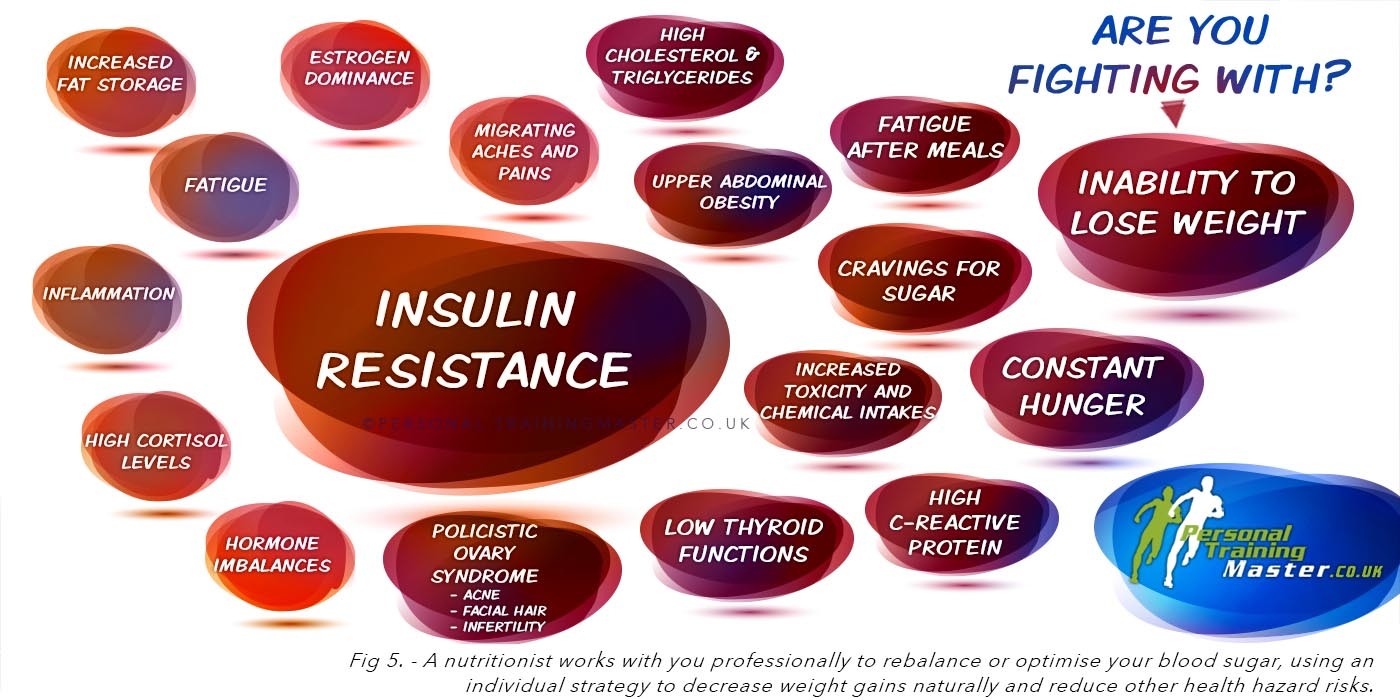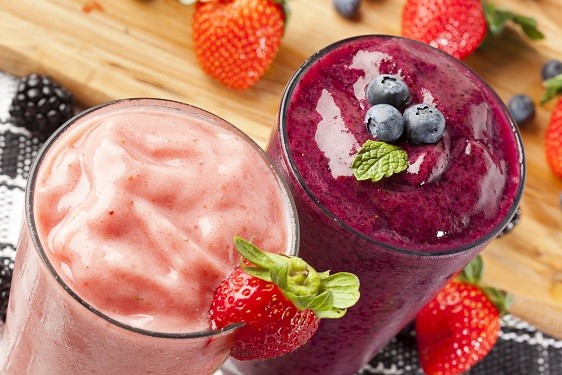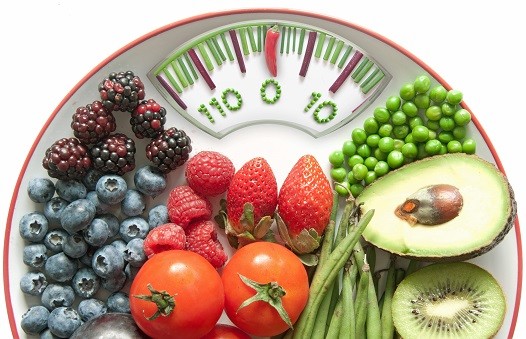It is widely accepted that after the age of 40, people start to pay more attention on the effects of ageing and try to slow it down. Ageing is a progressive process, accompanied by changes in all human organs and is associated with diseases like diabetes, cardiovascular diseases, Parkinson, cancer, Alzheimer disease, skin and hair changes etc.

Changes over the 40’s
Some of the most notable changes are:
• the skin becomes drier and less elastic
• the hair turns grey and their number reduces
• you start losing points in height
• your vision abilities decline
• your sleep changes and you sleep less
• your metabolism slows down
• your strength is reduced
• your lungs work less efficiently
• your brain sharpness is not like before
• your hormonal levels start to decline, and you are more anxious about your sexual function. [1]
Mechanisms of ageing
The mechanisms involved in the process of ageing are partially intrinsic to the organism, genetic and epigenetic, and partially external including factors like radiation, temperature, nutrition and others. [2]
DNA in the living cell is subject to many alterations, both chemical and physical. Metabolic processes lead to several thousand incidents of DNA damaging daily. Some of the major sources of DNA damage:
• Environmental chemicals such as hydrocarbons, including some found in cigarette smoke. In addition, some plant and microbial products like the aflatoxins produced in mouldy peanuts.
• Highly-reactive oxygen radicals produced during normal cellular respiration as well as by other biochemical pathways.
• Certain wavelengths of radiation: ultraviolet rays, especially the UV-C rays, ionizing radiation such as gamma rays and X-rays
• Chemicals used in cancer chemotherapy [3]

To manage to battle the different types of DNA damage that occur, cells have developed many repair mechanisms, but when these mechanisms are not enough to repair the damage, you need to support your immune system with extra supplements.
Supplements against ageing mechanisms
• Vitamin C
Vitamin C is considered as a strong antioxidant vitamin that plays a role in various diseases such as neurodegenerative diseases and cancer. Human and animal studies show a strong correlation between the declining vitamin C levels and aging. [4]
• Vitamin D
It is estimated that more than 25% of the world population has low serum vitamin D levels.
Additionally, aging reduces skin vitamin D production, affecting significantly women.
There is a growing body of evidence supporting that normal vitamin D levels contribute to a healthier status and indirectly increase longevity.
A meta-analysis of many studies concluded that vitamin D supplementation for about 6 years lead to reduced risk of all cause death by 7%. [5]
•Blueberry Extracts
Blueberries, containing large amounts of polyphenols, possess a greater antioxidant capacity compared to other vegetables and fruits.
It has been shown that consumption of natural compounds in blueberries can retard the age-related physiological and functional deficits by enhancing cognitive and motor behaviour as well as attenuating cognitive declines in object recognition memory. [6]

• Mushrooms
In a 2017 study, researchers studied the antitumor activities of Pleurotus eryngii mycelium by examining the survival of cervical, breast, and stomach cancer cells.
Researchers concluded that Pleurotus eryngii mycelium has potential applications in functional foods as a natural anti-aging and anti-virus agent with antioxidant and immune-stimulatory activities. [7]
•Melatonin
Melatonin (N-acetyl-5-metoxy-tryptamine) is a hormone mainly synthesised in the pineal gland but also in other body parts, including skin, the gastrointestinal tract, bone marrow, eyes and lymphocytes.
The decline in circulating levels of melatonin is associated with ageing and the gradual deterioration of the immune system brought on by natural age advancement. [8]
• Acai Berry
Euterpe oleracea is a palm tree that grows mainly in the Amazonian areas of Brazil and Colombia. It bears a purple berry like fruit known as acai berry. [9]
There are several studies talking about the high antioxidant capacity and potential anti-inflammatory activities of acai berry.
The high levels of polyphenols, anthocyanins, flavonoids and carotenoids make the acais a significant antioxidant source.
Studies showed that the high content of anthocyanins plays an antiproliferative role on different cancer cells. [10]
Do you want to feel, look younger, and achieve your fitness goals?
Contact Jazz Alessi by clicking on this link now, here !
• Quercetin
Quercetin is found in many fruits and vegetables such as berries, cherries, apples, onions, broccoli and capers.
Quercetin accounts for almost 50% of flavanols intake. There are studies demonstrating that quercetin can exert neuroprotection and antagonize oxidative stress when administered to humans and animals.
Studies show that it protects from oxidative stress and neurotoxicity induced by several neurotoxic insults.
Additionally, quercetin also antagonizes cognitive impairment induced by a high fat diet and it ameliorates Alzheimer’s disease pathology and related cognitive deficits. [11]
• Curcumin-Tumeric
Curcumin is a yellow coloured polyphenol contained in the spice turmeric and it is widely used in Asian cuisine.
It has antimicrobial and antiseptic properties and it is responsible for the yellow colour of turmeric. Turmeric is a strong anti-inflammatory and antioxidant agent. [12]
According to studies, curcumin supplementation significantly increased survival rate.
The anti-inflammatory and antioxidant properties of curcumin contribute to its potential antiaging effect. [13]
Do you want to feel, look younger, and achieve your fitness goals?
Contact Jazz Alessi by clicking on this link now, here !
• Lutein
Lutein is a carotenoid, which is synthesised within dark green leafy plants, such as spinach and kale. Lutein is considered as being safe for supplementation into foods and beverages.
Recent data shows that lutein possesses antioxidant, anti-inflammatory and blue light-absorptive properties providing protection against ocular diseases.
Since oxidative damage of lens proteins plays a major role in development of cataracts, anti-oxidative functions of lutein explain its likely role in slowing the formation of cataracts.
It has been suggested that 6 mg of lutein per day, either through diet or using supplements is likely effective in reducing the risk of cataracts and macular degeneration. [14]
•Epicatechin
Epicatechin is a flavanol found in plenty of foods like cocoa bean, tea, apples, berries, chocolate, grapes and pears.
According to epidemiological data, people who consume large amounts of cocoa beverage daily, have a considerable lower incidence of diabetes, ischemic heart disease, stroke and a remarkably longer lifespan compared to those who live in the mainland of Panama.
There is a study reporting that dietary chocolate intake (4 kg chocolate/50 kg body weight) extended average life expectancy by as much as 4 years in humans. [13]
Who is Jazz Alessi
Jazz Alessi is a leading anti ageing London nutritionist, Clinical exercise specialist and lifestyle professional dedicated to support you to successfully counteract, slow down and stop (up to a point) ageing effects.
Jazz is a long term Certified Nutritionist in London and Weight Loss Expert that provides customised nutrition diets plans according to your age, metabolism, gender, activity levels, allergies, oxidative stress levels, and special goals and specific longevity needs.
His specialisation in Clinical Exercise, Elite Personal Training, Injury Rehabilitation and 2nd Generation Pilates will additionally help you to improve your overall health, recreating vitality and make you look and feel younger!
Do you want to feel, look younger, and achieve your fitness goals?
Contact Jazz Alessi by clicking on this link now, here !
References
1) WebMD. Healthy Normal Ageing
2) Ladislas R
Cellular and molecular mechanisms of aging and age- related diseases.
Pathol Oncol Res. 2000;6(1):3-9.
3) Sigmalldrich. Technical documents. Biofiles, DNA damage and repair.
4) Vladimir Camarena and Gaofeng Wang
The Epigenetic Role of Vitamin C in Health and Disease
Cell Mol Life Sci. 2016 Apr; 73(8): 1645–1658.
5) Pérez-López FR, Fernández-Alonso AM, Mannella P, Chedraui P.
Vitamin D, sunlight and longevity.
Minerva Endocrinol. 2011 Sep;36(3):257-66.
6) Peng C, Wang X, Chen J, Jiao R, Wang L, Li YM, Zuo Y, Liu Y, Lei L, Ma KY, Huang Y, Chen ZY.
Biology of ageing and role of dietary antioxidants.
Biomed Res Int. 2014;2014:831841. doi: 10.1155/2014/831841. Epub 2014 Apr 3.
7) Sun Y, Hu X, Li W
Antioxidant, antitumor and immunostimulatory activities of the polypeptide from Pleurotus eryngii mycelium.
Int J Biol Macromol. 2017 Apr;97:323-330. doi: 10.1016/j.ijbiomac.2017.01.043. Epub 2017 Jan 16.
8) Cutando A, López-Valverde A, Arias-Santiago S, DE Vicente J, DE Diego RG
Role of Melatonin in Cancer Treatment
Anticancer Res. 2012 Jul;32(7):2747-53.
9) J Agric Food Chem. 2006 Nov 1;54(22):8598-603.
Schauss AG, Wu X, Prior RL, Ou B, Patel D, Huang D, Kababick JP.
Phytochemical and nutrient composition of the freeze-dried amazonian palm berry, Euterpe oleraceae mart. (acai).
J Agric Food Chem. 2006 Nov 1;54(22):8598-603
10) Shelly Hogan, Hyun Chung, Lei Zhang, Jianrong Li, Yongwoo Lee, Yumin Dai, Kequan Zhou
Antiproliferative and antioxidant properties of anthocyanin-rich extract from acai.
Food Chemistry Volume 118, Issue 2, 2010:208-214
11) Costa LG, Garrick JM, Roquè PJ, Pellacani C
Mechanisms of Neuroprotection by Quercetin: Counteracting Oxidative Stress and More.
Oxid Med Cell Longev. 2016;2016:2986796. doi: 10.1155/2016/2986796. Epub 2016 Jan 24.
12) WebMD Vitamins, supplements, turmeric, active ingredients ID.662
13) Si H, Liu D
Dietary antiaging phytochemicals and mechanisms associated with prolonged survival.
J Nutr Biochem. 2014 Jun;25(6):581-91. doi: 10.1016/j.jnutbio.2014.02.001. Epub 2014 Mar 12.
Disclaimer: This website and all its content is to be used for information purposes only. This website or any of its content or links to third parties does not diagnose, advise, treat or cure any ailments, illness or disease.
You agree to hold harmless the owner of this site for any action taken on your own without consulting your medical doctor first by using the information on the website for diagnostic, treatment, or any other related purposes. This is not medical advice. If you are suffering from any illness, disease or ailments please contact your doctor first and immediately.



